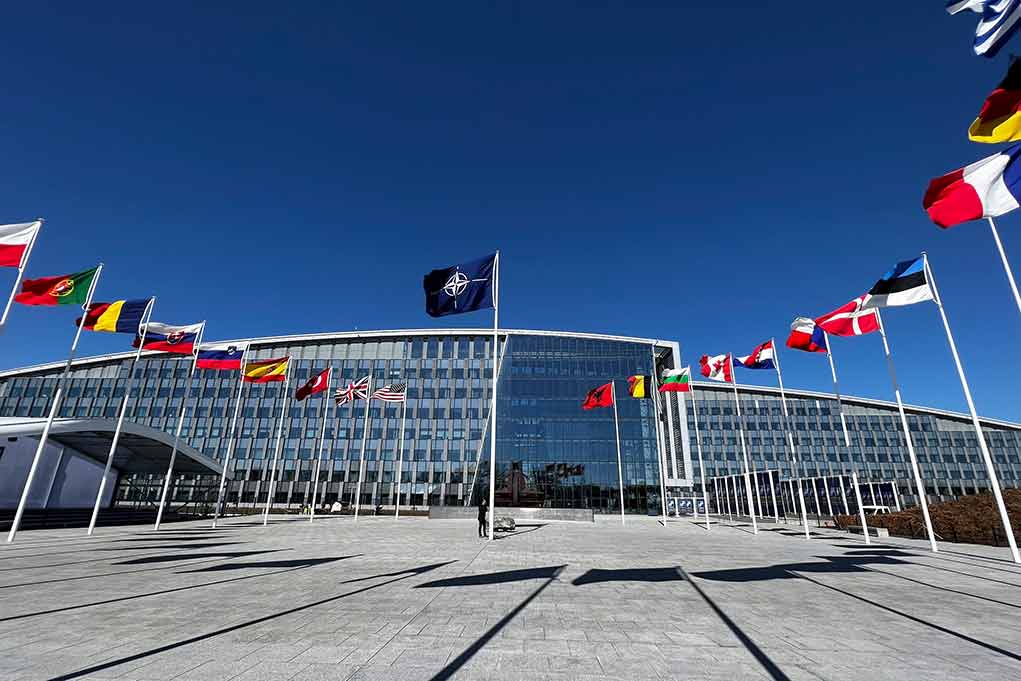
Poland’s newly elected President Karol Nawrocki has delivered a decisive blow to Ukraine’s EU membership aspirations, forging a powerful alliance with Hungary’s Viktor Orbán to prioritize their nations’ economic interests over Kyiv’s European integration ambitions.
Key Takeaways
- Poland’s President-elect Karol Nawrocki and Hungary’s Viktor Orbán both firmly oppose Ukraine’s EU membership based on economic and national interest concerns.
- Agricultural competition remains a primary concern, with both leaders warning that Ukrainian membership would severely damage their farming sectors.
- While Nawrocki commits to supporting Ukraine against Russian aggression, he demands respect for Polish interests, including historical reconciliation over the Volhynia Massacre.
- Orbán warns that Ukraine’s EU membership would redirect critical EU funding away from Central Europe and potentially create a new conflict front.
- The Poland-Hungary alliance represents a significant setback for Ukraine’s fast-track EU ambitions despite broad Western support.
National Interests Over European Integration
Poland’s President-elect Karol Nawrocki has taken a firm stance against Ukraine’s European Union membership, aligning his position with Hungarian Prime Minister Viktor Orbán in a partnership that prioritizes domestic interests. Despite Poland’s significant military and humanitarian support for Ukraine throughout Russia’s invasion, Nawrocki has made his opposition clear, stating plainly: “At the moment, I am against Ukraine’s entry into the European Union,” according to an interview with Breitbart News. This position represents a significant shift from Poland’s previous comprehensive support and puts Nawrocki at odds with Polish Prime Minister Donald Tusk’s pro-Ukraine EU membership stance.
Nawrocki’s victory over Warsaw’s internationalist mayor signals a growing conservative influence in Polish politics. While maintaining that Russia remains “a post-imperial, neo-communist state” and calling Vladimir Putin “a war criminal,” Nawrocki emphasizes that support for Ukraine must not come at the expense of Polish economic stability. His opposition stems from concerns about Ukraine’s corruption levels and the potential negative impact on Polish agriculture and transport sectors, which would face direct competition from Ukrainian industries if membership were granted.
The Warsaw Recalibration: How President Nawrocki May Redraw Poland’s Role in the Ukraine War
Poland’s 2025 presidential election represents far more than a mere change of tenant in the Presidential Palace. The victory of Karol Nawrocki—a conservative historian with no prior… pic.twitter.com/IubJusPiaH
— Niels Groeneveld (@nigroeneveld) June 2, 2025
Agricultural Concerns and Economic Competition
The agricultural sector stands at the center of both Polish and Hungarian objections to Ukraine’s EU membership. Ukraine’s vast agricultural production capability threatens to overwhelm European markets, potentially undercutting prices for farmers in both countries. Nawrocki has specifically highlighted the unfair competition Polish farmers would face from Ukrainian producers who operate under different regulatory standards and with significantly lower production costs. The issue has already sparked farmer protests across Europe over Ukrainian agricultural imports, demonstrating the real-world economic tensions that would be exacerbated by full EU membership.
“Hungary and Hungarian families have something to lose. If Ukraine joins the European Union, we will lose a significant part of our successes and opportunities, because the money like a sponge is sucked up by Ukraine and driven out of Central Europe,” said Viktor Orbán.
Orbán’s concerns extend beyond agriculture to broader financial implications, arguing that Ukraine would absorb massive amounts of EU funding that would otherwise benefit Central European nations. With Ukraine requiring billions in reconstruction aid and ongoing support, Hungarian officials fear their country’s share of EU development funds would diminish significantly. This economic reality has cemented the Hungary-Poland alliance on this issue, creating a formidable obstacle to Ukraine’s EU aspirations despite the broader European push for accelerated membership.
Historical Issues and Regional Security
Beyond economic concerns, Nawrocki has emphasized historical reconciliation as a prerequisite for improved Polish-Ukrainian relations. The Volhynia Massacre, in which Ukrainian nationalists killed tens of thousands of Polish civilians during World War II, remains a painful historical memory in Poland. Nawrocki advocates for stronger recognition of this tragedy and supports collaborative exhumations in Ukraine, making historical reconciliation a key component of his conditions for supporting Ukraine internationally. This focus on historical justice reflects the conservative values that powered his electoral victory.
“I am looking forward to continuing the partnership of our countries, based on mutual respect and understanding. I believe it requires not only good dialogue but also solving overdue historical issues,” said Karol Nawrocki.
Security concerns also feature prominently in the opposition to Ukraine’s EU membership. Orbán has been particularly vocal about the risks of expanding the EU to include a nation actively at war with Russia. “We want peace; we don’t want a new eastern front, and we don’t need Ukraine’s European Union membership, either,” Orbán stated, warning that Ukrainian membership could further destabilize Central Europe and potentially draw other EU nations deeper into the conflict. The Hungarian leader’s concerns about regional security reinforce his economic arguments against Ukrainian accession, creating a multi-faceted opposition that will be difficult for EU integration advocates to overcome.
The Path Forward for Ukraine
Despite the significant obstacles presented by Polish and Hungarian opposition, Ukraine continues to pursue EU membership as a key strategic goal. President Zelenskyy has made European integration central to his vision for Ukraine’s future, viewing it as both a security guarantee and economic lifeline. However, with EU accession requiring unanimous approval from all member states, the Poland-Hungary alliance creates a potentially insurmountable roadblock unless significant concessions are made to address their economic and historical concerns.
While Nawrocki has made clear his opposition to immediate EU membership for Ukraine, he has expressed a desire for continued partnership “based on mutual respect and understanding.” This suggests possible pathways for negotiation that could eventually lead to Polish support under certain conditions. For Ukraine, the challenge will be balancing its urgent desire for Western integration against the need to address legitimate concerns from neighboring countries whose economies could be significantly impacted by its membership. The coming months will test whether Ukraine can find a diplomatic solution that satisfies these competing priorities.




